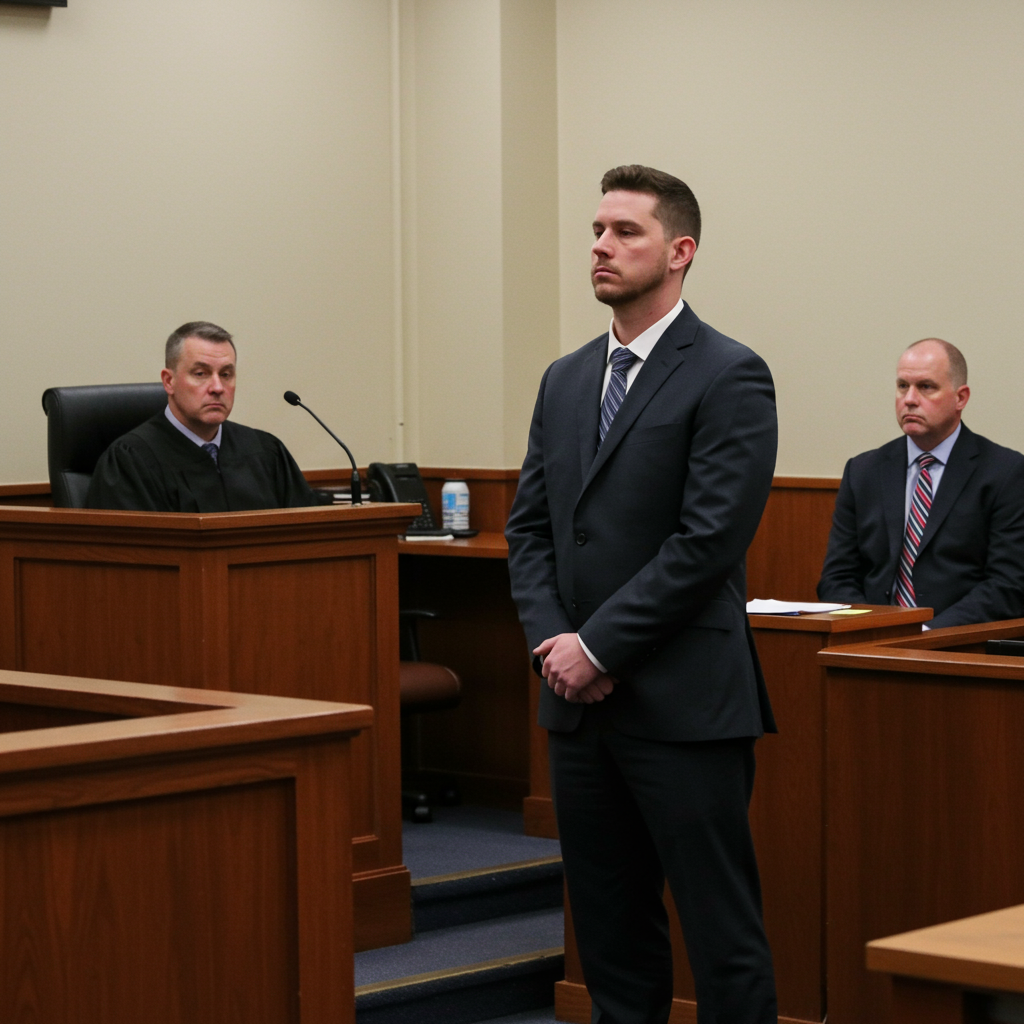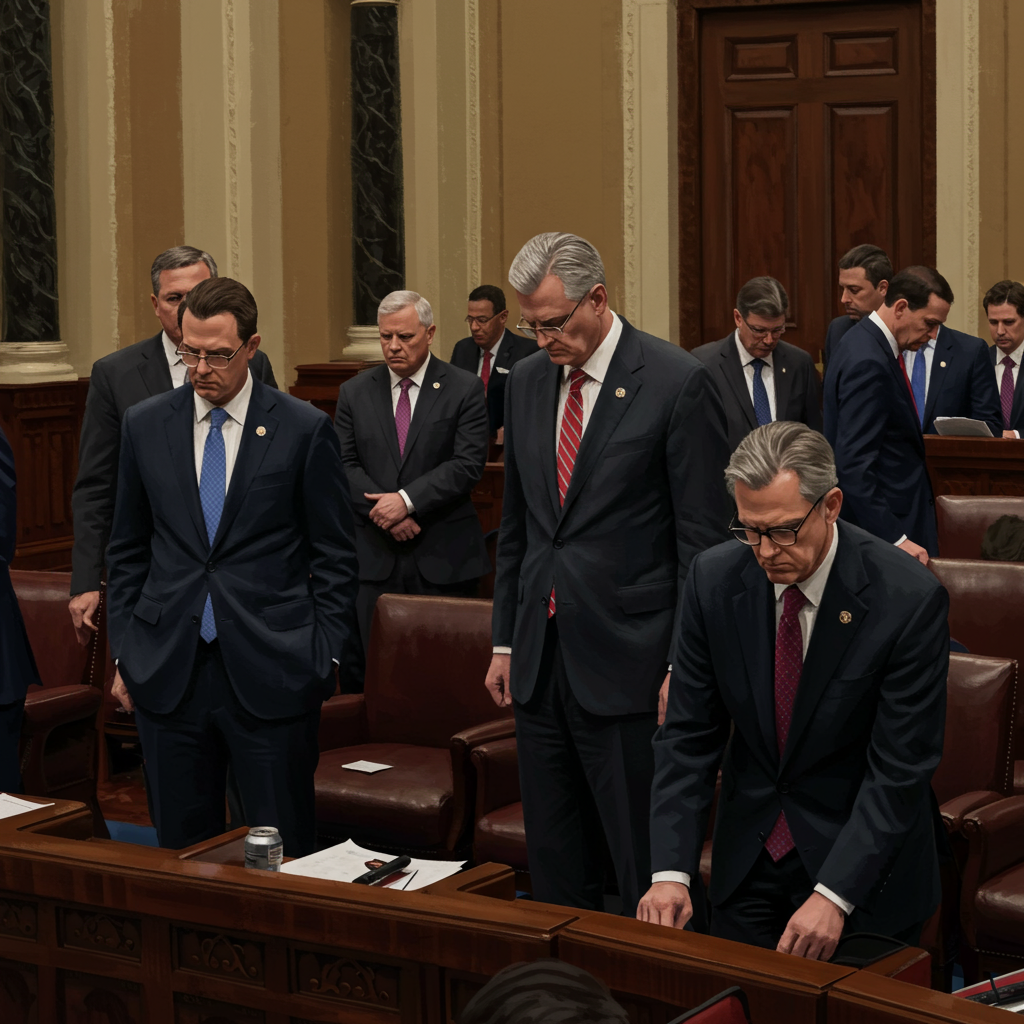A pivotal moment arrived in the tragic case of the 2022 Idaho student killings this week when Bryan kohberger, the man accused of the brutal stabbings, formally pleaded guilty. This decision came as part of a plea agreement. The outcome dramatically alters the legal trajectory, removing the possibility of the death penalty for Kohberger in exchange for his admission of guilt.
Kohberger, a 30-year-old former PhD student in criminology, appeared before State District Judge Steven Hippler in Boise, Idaho, for a change-of-plea hearing. The courtroom was filled with tension, packed with family members of the four young victims. In a solemn proceeding, the judge systematically read the names of each student killed. To each name, Kohberger responded with a stark and clear “yes” when asked if he had intentionally, deliberately, and with premeditation murdered them.
Unpacking the Plea Agreement
The agreement sees Kohberger pleading guilty to all five counts he faced. These included four counts of first-degree murder and one count of burglary. The charges stem from the fatal stabbings that occurred in the early morning hours of November 13, 2022. The victims were University of Idaho students Ethan Chapin (20), Kaylee Goncalves (21), Xana Kernodle (20), and Madison Mogen (21). They were found dead in their off-campus residence in Moscow, Idaho.
Crucially, the plea deal removes capital punishment as a sentencing option. Instead, Kohberger has agreed to a sentence of life in prison. This life sentence will be served without any possibility of parole within Idaho’s Department of Corrections system. This resolution means the case will not proceed to a lengthy and complex trial that had been anticipated for August.
Why a Plea Deal Now? Exploring the Factors
The timing and nature of the plea deal have prompted questions, particularly given the prosecution’s stated intention to seek the death penalty and the apparently strong evidence they had gathered. While official motivations aren’t always fully disclosed, expert observers and statements suggest several potential factors at play.
One significant consideration is likely judicial economy and cost. High-profile capital murder trials are extraordinarily expensive, particularly for smaller counties like Latah County, where the crime occurred. The case had already been moved to Boise to ensure a fair trial, adding logistical complexity and expense. A plea deal avoids the immense financial burden of a lengthy trial and subsequent, potentially decades-long, appeals process inherent in death penalty cases.
Another perspective, shared by the Latah County Prosecuting Attorney Bill Thompson according to reports, frames the resolution as a sincere effort to secure a definitive conviction. By agreeing to life without parole, the prosecution ensures Kohberger remains incarcerated permanently. This avoids the uncertainty of a jury trial verdict and eliminates the possibility of the conviction being overturned on appeal years down the line. Thompson reportedly expressed this view in a letter, stating the agreement “ensures that the defendant will be convicted, will spend the rest of his life in prison, and will not be able to put you and the other families through the uncertainty of decades of post-conviction appeals.”
The Defense’s Position
From the defense’s standpoint, avoiding the death penalty was likely the primary, perhaps only, bargaining tool available. The defense had faced recent setbacks in court. A judge had rejected their attempts to delay the trial and dismissed their request to present an “alternate perpetrator” theory. Furthermore, their inability to establish a credible alibi for Kohberger’s whereabouts during the critical time window of the killings weakened their position considerably. With few viable paths to challenge the state’s evidence at trial and avoid a potential death sentence, entering a plea that guaranteed life imprisonment was a strategic move to remove the gravest penalty. Unlike some historical plea deals, such as the one involving serial killer Gary Ridgway, this agreement reportedly came without any conditions requiring Kohberger to provide information, such as the location of the murder weapon or details about a motive.
Emotional Scenes in the Courtroom
The atmosphere inside the Boise courtroom during the plea hearing was described as intensely emotional, despite outward displays of restraint. Spectators, including media members, were reportedly instructed to maintain composure. However, the raw grief of the victim families was palpable. They stared intently at Kohberger and the judge throughout the proceedings.
One observer noted that while many family members held their emotions in check, the aunt of Kaylee Goncalves was seen silently weeping, using a tissue. Kohberger himself remained largely expressionless throughout the hearing. He did not appear to make eye contact with any of the family members present. His demeanor was described as stoic, seemingly unaffected by the weight of the proceedings or the pain of the victims’ loved ones. When asked to take an oath to tell the truth, Kohberger reportedly started to stand up, prompting the judge to inform him it wasn’t necessary, acknowledging his apparent attempt at showing respect. Observers specifically watched Kohberger’s reaction when the prosecutor mentioned the murder weapon, a knife, had never been found. He reportedly showed no visible response.
Family Reactions and the Quest for Closure
For the families of Ethan Chapin, Kaylee Goncalves, Xana Kernodle, and Madison Mogen, the plea deal has elicited varied and complex reactions. While some may view the certainty of a guilty plea and life sentence as a form of closure, others are deeply dissatisfied, feeling that a trial would have provided much-needed answers.
Steve Goncalves, Kaylee’s father, has been outspoken in his disappointment and anger. He reportedly expressed feeling “furious at the State of Idaho,” believing the state “failed us” by not pursuing a trial that could have revealed more facts. He and others share a desire to understand the unanswered questions that a trial might have explored: Why this specific house? Why were these four students targeted? Was anyone else involved? Where is the murder weapon? Without a public trial, the motive behind the horrific attack remains officially undisclosed, potentially leaving families without crucial information needed for their healing process.
Conversely, reports indicate that the family of Madison Mogen, through their attorney, felt the plea deal could offer a path toward closure and moving forward. However, the father of Xana Kernodle reportedly expressed a sentiment that the outcome was “not alright,” emphasizing the lingering truth they may never uncover. The speed at which the plea deal was reached and the change of venue to Boise also presented logistical challenges for families who had to travel quickly, adding to the difficult experience.
Key Evidence in the Case
While the plea avoids a full airing of all evidence at trial, previous court documents outlined the prosecution’s case. Key elements reportedly included DNA evidence found on a knife sheath discovered near one of the victims. Investigative genetic genealogy was used to link this DNA profile to Kohberger. Furthermore, cell phone data and surveillance footage allegedly placed Kohberger in the vicinity of the Moscow home around the time of the murders. An affidavit also included the account of a surviving roommate who reported seeing a masked man with “bushy eyebrows” inside the house during the early morning hours of the attack. This evidence was considered strong by observers and contributed to the prosecution’s confidence in the case had it gone to trial.
What Happens Next? Sentencing Hearing
With the guilty plea entered, the case now moves towards sentencing. A hearing is currently scheduled for July 23. Attorneys on both sides have reportedly indicated they are not requesting a pre-sentencing report, which is typical in many cases.
The sentencing hearing will be a crucial opportunity for the victims’ families. They are expected to deliver victim impact statements. These statements allow loved ones to express the profound effect the crimes have had on their lives and the lives of their families. While courtroom procedures vary, it is possible some courts allow family members to address the defendant directly during these statements. It will be a poignant and likely emotional day.
Additionally, Bryan Kohberger himself will be given an opportunity to address the court before sentencing is formally pronounced. In typical sentencing hearings, defendants often use this time to plead for mercy. Given the mandatory life-without-parole sentence in this case, any statement from Kohberger would be something he chooses to say, perhaps directed towards the court, the families, or the public. Whether he will choose to speak, and what he might say, remains an open question.
The gag order that had significantly restricted public comment from those involved in the case is expected to be lifted after sentencing. This order was put in place to protect Kohberger’s right to a fair trial before a jury. With the trial avoided by the guilty plea, the legal justification for the order diminishes, restoring the parties’ First Amendment right to speak publicly about the case.
One aspect that will not occur is an appeal from Kohberger. As part of the plea agreement, he is waiving his right to appeal the conviction or sentence. This ensures finality from a legal standpoint, meaning he will serve the remainder of his life in prison in Idaho.
Frequently Asked Questions
What does Bryan Kohberger’s plea deal mean for the Idaho murder case?
Bryan Kohberger’s plea deal means he has pleaded guilty to the murders of Ethan Chapin, Kaylee Goncalves, Xana Kernodle, and Madison Mogen, as well as the burglary charge. In exchange for his guilty plea, the prosecution agreed not to seek the death penalty. The legal consequence is that Kohberger will be sentenced to life in prison without the possibility of parole, avoiding a trial and waiving his right to appeal. This provides legal finality to the case.
Why did prosecutors and the defense agree to a plea deal in this case?
Reasons for the plea deal are multifaceted. For the prosecution, it guarantees a conviction and eliminates the risk of an acquittal or lengthy appeals associated with a trial and death penalty case, saving significant time and public funds. For the defense, it was likely the only way to avoid the death penalty, particularly after losing motions to delay the trial and present alternative theories, and lacking a credible alibi for Kohberger. The deal offered the defense a way to secure a sentence of life without parole instead of facing a potential death sentence after a trial.
What happens next after Bryan Kohberger’s guilty plea?
The next major step is the sentencing hearing, currently scheduled for July 23. During this hearing, the judge will formally impose the sentence of life without parole. A key part of the hearing will be victim impact statements, allowing the families of the four students to address the court and potentially the defendant. Bryan Kohberger will also have the opportunity to speak before the sentence is finalized. After sentencing, the gag order in the case is expected to be lifted.
Conclusion
Bryan Kohberger’s guilty plea marks a significant and sudden turning point in the high-profile Idaho student murders case. By admitting guilt to four counts of first-degree murder and one count of burglary, Kohberger ensures he will spend the rest of his life behind bars without the possibility of release, while avoiding the ultimate penalty of death.
While this resolution brings legal closure and spares the involved parties a protracted and emotionally draining trial, it leaves many profound questions unanswered, particularly for the victims’ families. The lack of public adjudication means the why behind the killings, the location of the murder weapon, and other crucial details may never be officially revealed in court.
As the case moves toward the formal sentencing hearing on July 23, the focus will shift to the voices of those most impacted: the families of Ethan Chapin, Kaylee Goncalves, Xana Kernodle, and Madison Mogen. Their impact statements will serve as a final, powerful testimony to the young lives tragically lost and the enduring pain caused by this crime. The case of the Idaho student murders, while legally resolved by Kohberger’s plea, will continue to resonate deeply with the community and the nation.



